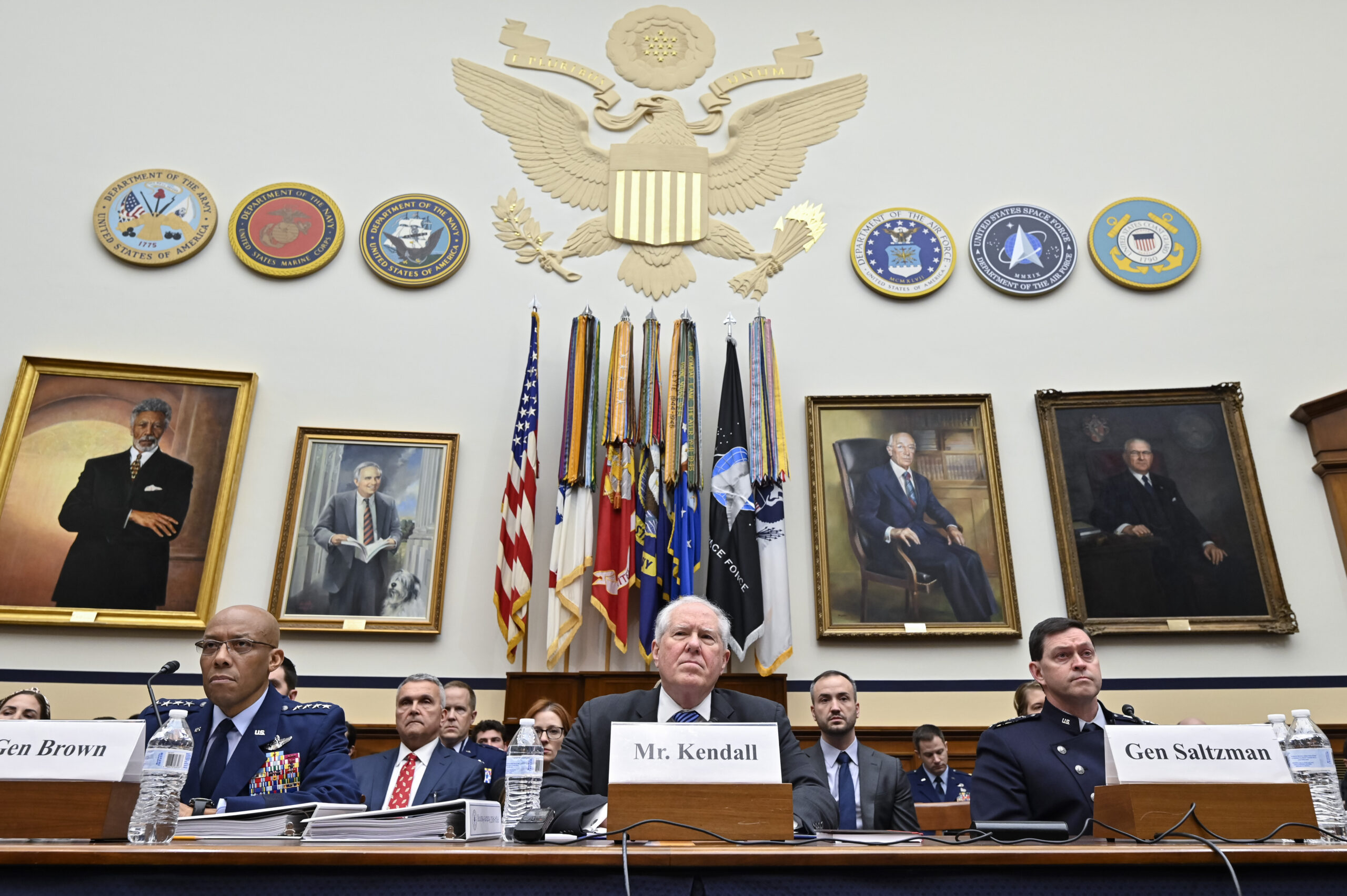ARLINGTON, Va. — The U.S. Space Force sees growing support from Congress for its plans to build large constellations in low Earth orbit and other priorities the service laid out in its 2024 budget request, the vice chief of space operations said May 15.
“We just finished defending our budget on the Hill and it’s been well received,” Gen. David Thompson said at an industry event organized by the Space Force Association.
“We are not really seeing any significant pushback,” on Capitol Hill or inside the Pentagon with regard to what the Space Force is trying to accomplish, Thompson said.
The Space Force’s proposed $30 billion budget in 2024, which DoD characterized as its “largest space budget ever,” is nearly $4 billion above last year’s appropriations.
The Space Force was established as the sixth branch of the U.S. armed forces in December 2019. Initially many on Capitol Hill questioned whether a new military service was really needed but that debate has been settled, Thompson said. “I have not heard these questions or comments in a very long time,” he added, “In fact, what I hear now, almost routinely is: ‘I don’t think I was a big fan when it started but I think you guys are doing alright.’”
But the Space Force can’t take this support for granted, Thomson said. “We’ve grown so quickly in terms of budget capability, now we have to make sure that we’re making smart investments with all of that money.”
LEO satellites a top priority
Thompson identified low Earth orbit satellite networks and training systems for satellite operators as the Space Force’s highest priorities in the 2024 budget.
“We continue to push hard in the direction, first of all, of resilient and proliferated architectures,” he said.
LEO and medium Earth orbit constellations are now in development to help defend U.S. forces from hypersonic missile attacks and for transmitting data in space. The Space Force and the National Reconnaissance Office also are jointly developing a proliferated LEO constellation to track moving targets from space.
The conflict in Ukraine has shown that “LEO is the right answer,” said Thompson. “It’s resilient under attack,” he said. “I don’t think it takes a space expert to have watched what has unfolded in Ukraine to see the value, benefit and resilience of commercial constellations.”
He noted that space-based communications and data relay will continue to get significant investment. “I’ll just tell you to continue to watch this space in 2025 and beyond. This is a tremendous growth area.”
DoD has embraced the idea that networks of low-orbiting satellites in space will be essential to fight wars in the future, he said. There is a need for “sensors passing data to decision makers, passing data to firing units, passing data to weapons in flight, and for continuing to get updates over hundreds and thousands of square miles.”

“In order to fight like that, you’re gonna have to have an incredible network in space,” Thompson said.
Due to the wide availability of commercial space systems, he said, “We’re on the way to a future where you should expect that, generally speaking, you’re going to be observed and sensed and monitored and tracked from space pretty much everywhere all the time.”
Education and training
Thompson also highlighted the Space Force’s plans to spend $340 million on a digital infrastructure for training satellite operators and testing the performance of new hardware.
The service is funding a program called National Space Test and Training Complex. Thompson said this is a critical effort to ensure Space Force guardians are “trained and prepared to fight … and that means an operational test and training infrastructure unlike what we’ve had in the past.”
Space Force units need sophisticated training systems like the ones used by the Army, Navy and Air Force, with “true threat replication, live, simulated and virtual thinking adversaries,” said Thompson.
